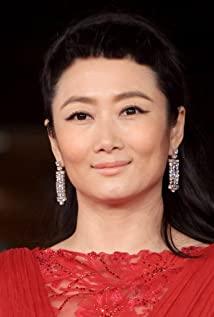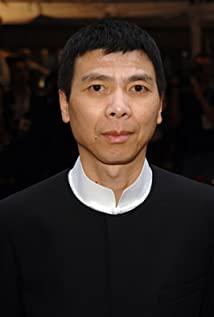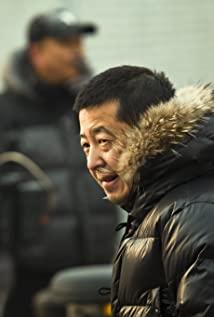(Text/Tiezhi)
1.
"Central Station" director Walter Sellers made a biographical documentary for Jia Zhangke called "Fenyang Kid Jia Zhangke". In the film, the section chief (Jia Zhangke) recounted that his early films could not be released to the public, and the audience could only watch them through pirated discs.
Once, there was a cafe in Beijing to show "Platform". The section chief was very happy to communicate with the audience, but when he arrived at the scene, he found that the cafe was a transparent box with four sides of glass, and the projected movie could not be seen clearly at all. Everyone had to try their best to wrap the cafe with black cloth, and finally the movie was barely shown in a bad environment.
At that time, the section chief was very sad, why his own movies could not be shown in Chinese cinemas, with normal chairs and dark rooms... After "Tian Destiny" was banned, the section chief even thought of quitting the film industry. Fortunately, the audience Not allowed, not even in his heart.
This time, I finally have a normal chair, a dark room, and the section chief once again "committed against the wind" and made a gangster movie - "Children of Jianghu"
The section chief repeatedly emphasized in the interview that he especially wanted to make a movie about the rivers and lakes. But in the current Chinese film environment, such hormones are sensitive, and the release of the film marks the progress of the times? Radio and television enlightened? Or did the section chief learn to play super edge ball? Did he also compromise in the commercial wave?
Not only has the section chief not compromised, but the rivers and lakes in his heart have become more macroscopic.
Jia Zhangke said: Jianghu is a social environment full of crises and intricate interpersonal relationships. Men and women who are affectionate and righteous leave their hometowns and find the possibility of life in this kind of wandering in the rivers and lakes...
Jianghu is not just a gang, but the common feeling of people in the whole era.
Time is the river, and the world is the lake. As defined by Brother Bin in the film: Where there are people, there are rivers and lakes. All of Jia Zhangke's films like to focus on the unpretentious county towns and passers-by, and capture the changes of the entire era through the ups and downs of individuals in the rivers and lakes. This is Jia Zhangke's unchanging ambition and concern.
2.
The movie begins on a dilapidated bus, and the familiar scene makes people think that Xiao Wu will suddenly appear. This DV image is taken from the material shot by Jia Zhangke in his early years. For a long time, he has been using different equipment and media to record images of the era.
In this "Children of the Rivers and Lakes", Eric Gauthier's photography is really amazing, with interlaced light and shadow and portrait details that only belong to the big screen. The heroine Qiaoqiao was sitting in this car. She got off the car and came to Datong, Shanxi in 2001, and met the protagonist, Brother Bin. The most interesting thing is that Brother Bin and Qiaoqiao are the characters in "Ren Xiaoyao", but "Children of Jianghu" is not a sequel to "Ren Xiaoyao", it is more like a continuation of life stages.
Brother Bin sits in Majiaguan, and there are not many harsh words, and a few words can calm people down; he looks like a godfather when he lifts weight lightly. His girlfriend Qiao Qiao walked into Brother Bin's life. They danced together with alcohol, treated each other with sincerity, and lived freely. During a street encounter, Qiao Qiao shot up to protect Brother Bin and was sentenced to prison. After being released from prison, Brother Bin was left behind, and he went against the river to find someone. Brother Bin, played by Liao Fan, is a big brother who abides by traditional morality. He swears to use incense, use pots for drinking, and ask the second master to go out to resolve disputes.
Brother Bin's eyes were full of evil spirits, and he carried a gun with him. On the surface, he was an inviolable person. But under the stern look, Brother Bin is a generous and kind person. To the gangster who attacked him, he was slightly startled and waved his hand away. In the video room surrounded by horses, when he saw Chow Yun-fat killing each other with blood, he could not bear to close his eyes. For sudden violence, his mantra is always: not wow. Even at the crux of the matter, he didn't take out the pistol he carried with him. It can be said that Brother Bin is a pacifist.
But on the other hand, Brother Bin treats others leniently because he is afraid of moral collapse. He has already sensed the signs of changes in the times, so he can only carefully maintain the already shaken order of the rivers and lakes. The second brother obviously died in the struggle for gold power, but Brother Bin turned it into a major event and attributed the source of the disaster to the fact that half of the eldest son wanted to make a comeback, and he was just afraid of extracurricular problems.
In the opening chat, the film set the stage for the decline of Shanxi's coal industry, and rumors that the local industry would be forced to relocate to Xinjiang. Later, Qiaoqiao also wanted Brother Bin to go to Xinjiang with him, but Brother Bin kept delaying and always felt that there was a lot to do in his hometown. The second brother who is doing business in Hong Kong reminds Brother Bin that he wants to be in line with international standards. Brother Bin disagrees. Liao Fan in the ballroom dance scene calmly shows Brother Bin's inner disgust. The pair of dancers trained by the second brother had a strange smirk on their faces, twisted their out of place and exaggerated bodies, and the stylized ballroom dance formed a strong contrast between Liao Fan and Qiao Qiao's unrestrained and ecstatic disco.
The most ironic thing is that at the funeral of the second brother, Brother Bin said to the female dancer that the second brother liked you the most during his lifetime. The dancer screams music! Undress and then start dancing. This show dance for the dead makes people laugh and sigh. The second brother of Jianghu, who has always been proud of being in line with the new era, died in the disputes and hypocrisy of the new era.
Although Qiaoqiao and Brother Bin are close to each other, she has always regarded herself as someone outside the arena. After brother Bin was lame, he taught Qiaoqiao how to use a gun in front of the volcano, and told Qiaoqiao that you are now from Jianghu.
Brother Bin's adherence to the morality of the rivers and lakes secretly passed on to Qiaoqiao in this section. Brother Bin looked at the volcano and said, I don't know if this place turned into cannon fodder. Brother Bin's words revealed his own destiny. The street battle in the film is very real, and it is a further attempt to type the section chief. The reason why Brother Bin was plotted was also a little bit of a foreshadowing. Under the premise of forgetting justice for profit, Brother Bin, who was in the name of righteousness, was no longer able to protect himself. Qiaoqiao rescued Brother Bin with two gunshots, which also announced the collapse of the moral cloud above their heads.
3.
Qiaoqiao spent five years in prison for Brother Bin. After she was released from prison, she went to Fengjie in the Three Gorges to find Brother Bin, looking for the lost love. The Three Gorges region is experiencing a veritable upheaval in the arena, both in time, space and region and in the hearts and minds of society. Qiao Qiao has the exact same appearance as Shen Hong, who is looking for her husband in "The Good Man in Three Gorges". In the face of changing mountains and rivers, he also has the same outlook.
In the first act of the film, through Liao Fan, we saw the conventional meaning of life in the rivers and lakes, and in the second act, a more grand picture of refugees in the rivers and lakes was shown through a clever one-man show.
Different from the documentary tone of "The Three Gorges", this time the section chief used melodrama and comedy to express the strange encounters of Qiaoqiao with thieves, motorcycle drivers, and other people in the arena. Unlike the stubborn brother Bin, Qiaoqiao knows how to take advantage of the situation and counterattack, and has wit and adaptability. When Qiaoqiao and Brother Bin met, Brother Bin refused to return to his hometown on the grounds that he was no longer a Jianghu native, but he waited for a comeback with the cliché of thirty years of Hedong and thirty years of Hexi. What I saw on the Yangtze River Cruise was the mountains and rivers going down.
On the train, the big fudge played by Xu Zheng came to a serious nonsense about "prisoners of the universe". Qiaoqiao was attracted by him, and followed him to Xinjiang, where she had always wanted to go. However, she chose to get out of the car in an extremely desolate place. The UFO that appeared in "The Good Man in Three Gorges" reappeared, illuminating the abandoned building in the dark night sky. Whether it is Qiao Qiao's personal life vision, or the future vision of Jianghe people in "The Three Gorges", it will become extremely strange before the ruins of life.
Coincidentally, I saw not only UFOs, but also how absurd it is that a person or a generation's life depends on others and the future. When the creation of life and the destruction of life rely on each other, all the distant thoughts of life become Like a surreal UFO, fleeting and out of reach.
People may be the prisoners of the universe, but they cannot be their own prisoners. Zhao Tao, through some very life-like details, unadorned a woman's deep affection and tenacity, as well as Qiao Qiao's awakening as a person and a woman. .
4.
Qiao Qiao, like Shen Tao in "The Old Man of the Mountains and Rivers", chose to return to the mahjong hall in her hometown. She tried to reshape Brother Bin's personality fragments and completed the moral handover of Brother Bin. The elder brother became the elder sister-in-law. The rivers and lakes have also become the rivers and lakes of retreat.
Do you hate me? Brother Bin asked Qiaoqiao, and Qiaoqiao answered. If he is ruthless to you, he will not hate you. Ruthless but righteous, Qiao Qiao took in the heartless brother Bin. People still shouted Brother Bin's name, but things were different. Brother Bin could only vent his fate by scolding his younger brother for not knowing the rules of serving the main food first, and weakly confirming his status in name only. Brother Bin, a straight man of steel, is like a steel building on the edge of the Three Gorges. He cannot escape the fate of being destroyed. He is far less resilient than Qiao Qiao's life.
The Big Three Gorges annihilated countless small Three Gorges, and the big rivers and lakes engulfed the small rivers and lakes.
Brother Bin did not pick up Qiaoqiao when she was released from prison. He knew that he could not repay Qiaoqiao's debt of kindness and chose to escape. Liao Fan played a man who was deprived of everything, stubbornness and helplessness repulsed in his body. life embarrassment. Brother Bin is very similar to the underworld characters in Kitano Takeshi's gangster movies. What made them dodge and lose their dignity was not swords and swords, but unbearable affection.
It is worth noting that there will be bursts of violent drumming from time to time in the film, which are distributed at the most important moments in the film. The first time was in the Mahjong hall, and Qiao Qiao walked into the life of Brother Bin. The sound of the drum is an oath;
The second time was the shooting on the street, which heralded the change in the fate of Brother Bin and Qiaoqiao;
For the third time, after the motorcycle driver conspired against Qiaoqiao, the drum sound expressed Qiaoqiao's extreme disappointment with people;
The final drum sounded at the end of the film, as if Qiao Qiao was shocked by her missing lover and tomorrow.
Each clanging hammer strike is like a warning of fate.
At the end, the big screen became the surveillance screen of the camera, and the figure of Brother Bin disappeared. At the video meeting, the section chief personally interpreted the meaning of this paragraph:
The first two hours have been telling their intense living love story. Everyone is alive, but in the surveillance video, it becomes a visual image that can be deleted at any time. Everyone is like cannon fodder. Sad situation.
When Qiao Qiao faced the volcano, he said to Brother Bin: "After burning at high temperature, the ashes are the whitest."
Everyone will eventually be turned to ashes by the volcano of the times, but they are the purest. Brother Bin and He Qiaoqiao burned and fell together. They met and fell in love in the rivers and lakes, and finally forgot each other in the rivers and lakes.
when the past will ever be past
The future is still here
The joys and sorrows of a lifetime
I will wait for you in Jianghu
5.
Over the years, most of the domestic movies have been indulged in urban love, martial arts fantasy and other genres. These movies include urban illusions in Beijing, Shanghai, Guangzhou and Shenzhen, and chivalrous tenderness under visual wonders, but you just can't see the thousands of county towns. The real life of thousands of ordinary people.
Jia Zhangke is like a domestic Antonioni. He photographed the living conditions of real Chinese people and their human sorrows and joys.
Compared with the noise and noise of domestic films in the growing period, Jia Zhangke's films are subtle and restrained, but there is something in the words. The images are permeated with a heavy humanistic interpretation, and the silent characters are full of psychological projections.
In these stories, there is no so-called clear character, strange plot, and they are alive, just like you, me, and him, listening to outdated but reassuring pop music, leisurely, impulsive, forbearing, Confused. It is for this reason that the memories of his hometown shot by Fenyang Kid can penetrate the hearts of audiences all over the world. What people see in these characters are honest emotions and the brand of the times.
Jia Zhangke used "Children of Jianghu" to sort out his film career, connecting various characters and clues in his 20-year works, from "Xiao Wu" to "Ren Xiaoyao" to the unemployed workers' children in "Three Gorges Good Man". A miner, a homecoming woman in "The Old Man of Mountains and Rivers". They are all sons and daughters of floating and sinking in the rivers and lakes.
From Fenyang to the Three Gorges and even to overseas and finally back to Fenyang, the movie characters and Jia Zhangke himself mirror each other in and out of the play. Society, geography and spirituality together constitute a large part of the history of changes in contemporary Chinese people.
To put it bluntly, no one in the Chinese director can do it, but this Fenyang boy can't be without. As the BBC commented, "Jia Zhangke explores the soul of modern China with a peculiar and unforgettable epic."
Next year, the section chief will start filming "In the Qing Dynasty", which has been in preparation for ten years. This is also his first commercial film. What kind of rivers, lakes and life fables can the section chief bring? Let's look forward to it together.
Finish
This article first appeared on Rotten Tomatoes Movies
View more about Ash Is Purest White reviews











